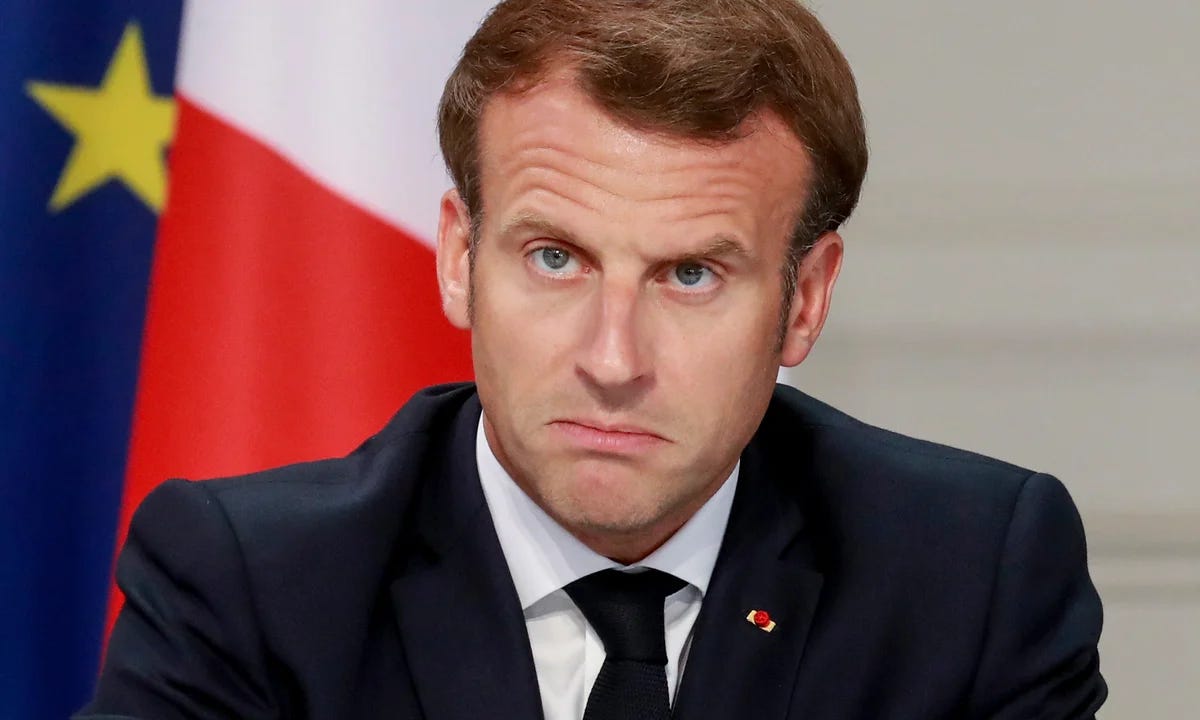French Government Collapses
Here's the EU's opportunity to start forging a state
French government collapses as PM François Bayrou loses confidence vote [FT]
The loss of the no-confidence vote by French Prime Minister François Bayrou on September 8, 2025, has significant implications for France’s political, economic, and social landscape. Below is a concise explanation of the key consequences:
1. Political Instability
Government Collapse: Bayrou’s resignation is mandatory after the no-confidence vote, requiring President Emmanuel Macron to appoint a new prime minister, the third in less than a year. The new PM must secure enough support in the fragmented National Assembly to govern.
Parliamentary Deadlock: The absence of a clear majority since the June 2024 snap election continues to hinder governance. Opposition from both the left (e.g., socialists, far-left) and right (e.g., National Rally) makes forming a stable government challenging.
Limited Options: Macron cannot dissolve parliament again until June 2026, restricting his ability to call new elections. A caretaker government may operate with limited powers, stalling major legislative efforts like the 2026 budget.
2. Economic and Fiscal Challenges
Budget Delays: The rejection of Bayrou’s austerity-focused budget, aimed at cutting €50 billion in debt, leaves France’s fiscal policy in limbo. This could exacerbate France’s high debt (over 110% of GDP), risking EU sanctions for excessive deficits.
Market Volatility: As Europe’s second-largest economy, France’s instability may unsettle financial markets, potentially raising borrowing costs and impacting the eurozone.
3. Social and Political Polarization
Rising Opposition: The success of the no-confidence vote strengthens both far-right (National Rally) and far-left factions, increasing their influence ahead of the 2027 presidential election.
Public Discontent: Ongoing political chaos may fuel public frustration with Macron’s leadership, potentially leading to protests or strikes, especially if austerity measures are later imposed.
4. International Implications
Weakened EU Role: France’s domestic turmoil could diminish its influence in the EU on critical issues like Ukraine aid, trade, or climate policy, placing additional burdens on partners like Germany.
Global Perception: Prolonged instability may undermine France’s credibility as a stable global actor, affecting diplomatic initiatives.
Conclusion
The no-confidence vote deepens France’s political crisis, risking prolonged governance paralysis, economic uncertainty, and social unrest. Macron faces a narrowing path to stabilize the government, requiring delicate negotiations in a divided parliament. Without a breakthrough, France’s domestic and international standing could face further strain.


